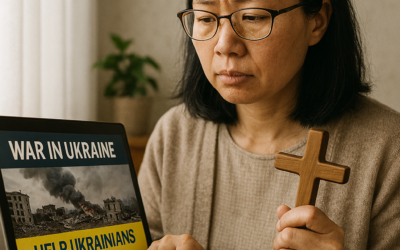The Arhat Mountain scenic area, built with private funds to pay tribute to Confucianism, Buddhism, and Taoism, came under the government’s attack.
by Ye Ling
Located in Tong’an district’s Lianhua town, under the jurisdiction of Xiamen city in the southeastern province of Fujian, Arhat (or Luohan) Mountain Scenic Area is a large cultural and tourist resort. It was built in 2009, initiated and mainly funded by Mr. Lin Zhiliang, a Chinese calligrapher and entrepreneur. The construction of the scenic area was also financed through charity events, during which people from all walks of life donated money.
The scenic area, built at the cost of more than 100 million RMB (about $ 14 million), integrates the Three Teachings in China: Confucianism, Buddhism, and Taoism. Over a thousand statues were enshrined there, including those of Buddhas, Bodhisattvas, and Arhats. Over 30 attractions, such as the jungle of 500 Arhat statues, Guanyin Pavilion, Arhat Tower, Guandi Temple, and others, have been set up in the scenic area.

Arhat statues in the scenic area before and after they were wrapped up with camouflage cloths.
In May, the government ordered to remove all of the statues from the scenic area, claiming that they were “unauthorized” and that no more than ten religious icons are allowed in one place.

Some Bodhisattva statues were moved inside, and others were covered.
Pressured by the state, the people in charge of the scenic area had no choice but to cover 500 Arhat statues with camouflage cloths and move the rest into an enclosed facility. Meanwhile, the statues of Buddhas were either concealed or demolished. The total cost of the project was over 400,000 RMB (about $ 56,000).

Buddhist statues were concealed with camouflage cloths.
The signs with religious content have also been modified: the Chinese characters for “Arhat Mountain” were changed into “Lotus Academy,” “Kṣitigarbha Temple” was replaced with “Confucius Classroom,” and the name of the temple dedicated to Caishen, the God of Wealth, has been changed to “Master Zhu Classroom,” to commemorate Zhu Xi (1130-1200), Chinese philosopher and founder of the “rationalist” school.

Large Buddhist statues at the entrance to the scenic area were hidden behind galvanized iron sheets.
The government also imposed restrictions on the calligraphy exhibitions by Mr. Lin Zhiliang in the scenic area, prohibiting him from writing anything related to Buddha. A local believer commented that by doing so, the authorities are intensifying their control over people and stifle the spread of religions.

The Chinese characters for “Arhat Mountain” have been changed to “Lotus Academy.”
A manager at the scenic area told Bitter Winter that several officials from the Xiamen city government were present at the opening ceremony of the Arhat Mountain Cultural and Industrial Park in May 2012. “Back then, the state approved its construction and required us to develop it into a tourist resort. Now, after all this money has been poured into it, they demand to demolish the statues. We’re left nowhere to turn for redress,” he complained.
“Many tourists arrived here to see the Arhat statues, only to find all of them wrapped up. They said we’d cheated them, but we can do nothing about it,” the staff member said helplessly. He added that in the past, many tourists visited the scenic area, from 20,000 to 30,000 people per day at its best time, but now their number has decreased sharply.

The sign “Kṣitigarbha Temple” was replaced with “Confucius Classroom.”
“The era of Mao Zedong has returned, everyone has to shout ‘long live the chairman,’ but religious beliefs are not allowed,” a local Buddhist lamented. “If all people believed in the Communist Party, it would be easier for the regime to control them, just like how it was during Mao’s rule, when the masses were ordered to support him. The CCP fears that people will become wiser if they are religious because it is unable to control wise people. The more slow-witted people are, the easier it is to control them.”

Uses a pseudonym for security reasons.



